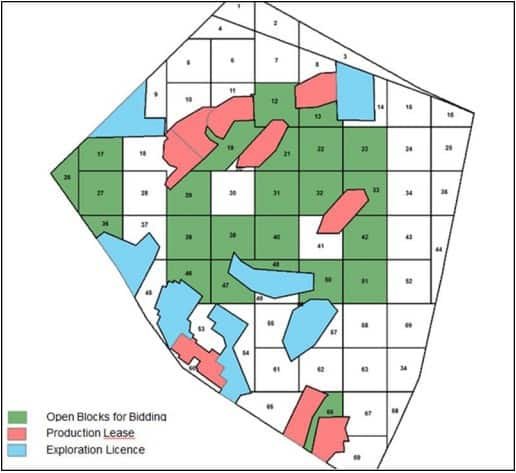Israel is planning to resume offshore exploration. After a four-year hiatus, new licenses are expected to be awarded in 2017, this time through a competitive bidding round, which will open in November 2016 and close in March 2017. After a few years of regulatory hurdles, the gas framework deal is hoped to bring stability to the regulatory framework. The tender will be a good opportunity to measure the level of trust among investors, particularly international companies. Authorities are certainly hoping the Zohr effect – instrumental in drawing bids in Cyprus’ third licensing round and attracting major companies – will also be at play in Israel in the coming months.
Twenty-four blocks are on offer. They do not include northern blocks running along the Lebanese-Israeli borders. Not a coincidence, according to an article by Israeli newspaper Yedioth Ahronoth, which claims Israel prefers avoiding a clash with Lebanon over potential hydrocarbon resources. The article goes further and claims the authorities also prevented drilling in Alon D, a block that is entirely in Israeli waters, even according to Lebanese maps. There are indications the block might contain hydrocarbon resources, with a possibility that these potential resources might extend into the Lebanese side of the border.

If the information is correct, it shows a degree of caution the Israelis have rarely exercised vis-à-vis Lebanon. The article raises more questions than answers. Is this cautious approach a result of the deterrence equation established at the border? A willingness not to disturb Special Envoy and Coordinator for international Energy Affairs Amos Hochstein’s final mediation efforts before the end of President Barack Obama’s term? Or is it intended to exert pressure on Lebanon to discourage Beirut from offering blocks on the border in its upcoming tender?
In any case, the expected purchase of two gas fields, Tanin and Karish, off the northern Israeli coast by Energean, may stir up an already difficult situation. At its closest, Karish is about 5 km from the Lebanese border, an area estimated to hold potential hydrocarbon resources. Rightly or wrongly, Lebanese authorities are worried Israel might attempt to steal Lebanese gas while developing Karish. The Greek company might not have anticipated it, but it can expect to attract considerable attention in Lebanon and will often find itself at the heart of the media and political debate. For this reason, the company might find it useful to address Lebanese fears, however misplaced it thinks they may be.
Incidentally, having a Greek energy company producing gas in Israel, a few kilometers from the Lebanese border, will also raise the stakes for Greece, a country that is already involved in stabilizing the Lebanese-Israeli front via an active participation in UNIFIL. Should we expect an increase in diplomatic activity between Athens and Beirut and Athens and Tel Aviv?
